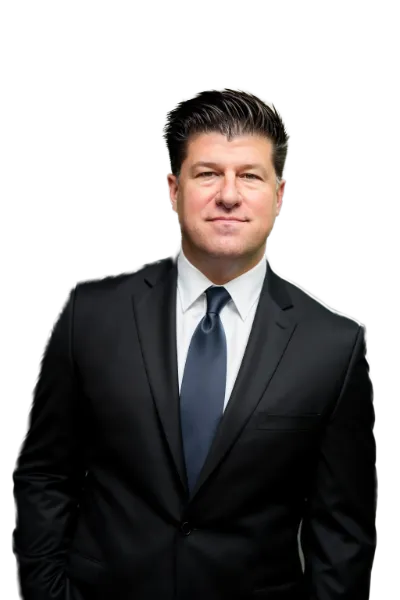
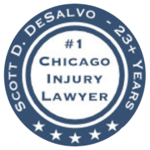



I need to tell you something before we go any further.
When I was nine years old, my father—a truck driver and proud Teamster—suffered a catastrophic injury at work. Severe damage to his neck, back, and spine. The kind that never heals. The kind that rewrites an entire family’s story overnight.
What followed was 17 years of legal hell with a lawyer who treated my dad like a case number. At the end of it all, his own attorney sued him for more fees. We went from a working-class family to poor. Just like that. And somewhere in the middle of that nightmare, I promised myself: what happened to my father would never happen to anyone I could help.
That’s why I became a spinal cord injury lawyer in Chicago. That’s why I’m still doing this every single day.
A few years ago, I met a woman named Maria at Northwestern Memorial Hospital. She’d been hit by a distracted driver on Lake Shore Drive—right near the Museum Campus where families take their kids on sunny weekends. T6 complete spinal cord injury. Paralyzed from the chest down. One careless moment on a phone erased the life she’d known.
I sat in that hospital room with her family, looking out at the Chicago River, and understood something I’ve understood in hundreds of cases: this wasn’t just a legal matter. This was everything. Her independence. Her family’s future. Her sense of who she was.
If you or someone you love is dealing with a spinal cord injury anywhere in Chicago—South Side, Lincoln Park, Pilsen, Rogers Park, the suburbs, anywhere—hear me: you don’t have to face this alone. And you won’t pay me a penny out of pocket. I work on contingency. No fee until we win. Hey so I need to vent.
Because here’s the reality most people don’t grasp until it’s too late: spinal cord injuries occupy a category of their own. They’re catastrophic. They’re permanent. They change absolutely everything. And the insurance companies already have teams of adjusters and defense attorneys strategizing how to minimize what they owe you. They’re counting on you being too overwhelmed and too uninformed to fight back.
I know how to fight back. I’ve been doing it for over 20 years.
Call me right now at (312) 500-4500. Middle of the night, Sunday morning, Christmas Day—doesn’t matter. I’m here 24/7/365. We’ll talk like two people having a real conversation, not some lawyer giving you a sales pitch.

A spinal cord injury is fundamentally different from almost every other injury. When your spinal cord gets damaged—severed, compressed, bruised, inflamed—everything below that point can be affected. Often permanently.
Think of your spinal cord as the main cable connecting your brain to every muscle, organ, and nerve ending in your body. Every movement, every sensation, every automatic function from breathing to bladder control runs through that narrow column of tissue. Damage it, and the signals stop getting through. Unlike a broken bone, the spinal cord doesn’t regenerate the way other tissues do.
I’ve represented people with complete injuries—total paralysis below the injury site. And people with incomplete injuries, where some function remains but life is still dramatically altered. Cervical injuries causing quadriplegia. Thoracic and lumbar injuries causing paraplegia. Every injury is unique, but one thing never changes: the financial recovery needs to cover not just today’s medical bills, but an entire lifetime of care.
That’s where most lawyers completely miss the mark. And that’s where I come in.
Let me share something the insurance companies desperately hope you never learn. A spinal cord injury is a multi-million dollar injury. Every single time. The Christopher and Dana Reeve Foundation tracks these costs meticulously:
Severity of Injury | First Year Costs | Each Year After |
High Tetraplegia (C1-C4) | $1,023,924 | $171,808 |
Low Tetraplegia (C5-C8) | $739,874 | $109,077 |
Paraplegia | $499,023 | $66,106 |
Incomplete Motor Function | $334,170 | $40,589 |
Imagine you’re 35 with a high cervical injury and live another 40 years. That’s roughly $8 million in lifetime medical costs alone. Before you add lost income, the $35,000 power wheelchair, the $80,000 van modification, the $50,000-$150,000 home renovation, or round-the-clock attendant care at six figures per year. And then there’s the income you’ll never earn. The career you can no longer pursue. The promotions and retirement contributions that evaporate overnight.
Now guess what the insurance company’s first offer looks like. It’s insulting. They’re betting you don’t know these numbers. They’re counting on you being so overwhelmed by mounting bills that you’ll accept whatever crumbs they throw your way.
That’s where I step in. I work with top life care planners and forensic economists in Illinois. We calculate your actual lifetime cost down to the dollar, then go after the insurance company for every cent.
A spinal cord case demands a lawyer who genuinely understands the medical science—someone who can read an MRI report, discuss neurological function with a spinal cord specialist, and explain the difference between an ASIA A and ASIA D classification without fumbling through notes. Not every personal injury lawyer can handle a spinal cord case. These are extraordinarily complex, and hiring the wrong attorney can cost you millions you’ll desperately need.
I’ve invested over $100,000 flying across the country to train with the best trial lawyers in America. I’m a graduate of Gerry Spence’s Trial Lawyer’s College—one of the most selective trial programs in existence. I’ve also completed “The Edge” program. Fewer than one in 10,000 practicing lawyers have done the training I’ve completed.
I’ve built deep working relationships with spinal cord injury physicians at Shirley Ryan AbilityLab—the number one rehabilitation hospital in the country. I work with accident reconstruction engineers, life care planners, vocational rehabilitation experts, forensic economists, and top neurologists and orthopedic surgeons who testify about your injuries.
Winning a spinal cord case isn’t just about proving negligence. It’s about proving the full scope of what this injury will cost you for every remaining year of your life. That takes a specialist.


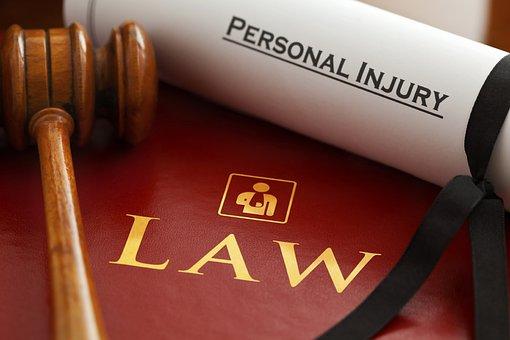

When you call, you get me. Not a paralegal. Not a junior associate. Me. People with catastrophic injuries deserve to have their calls returned promptly, to trust their lawyer, and to know what’s happening without chasing anyone for updates. Everyone on my team understands that winning your case while genuinely supporting you through the process is the only thing that matters. You’re not a file number. You’re a person whose world just collapsed.
I’ve tried over 30 jury trials, handled hundreds of depositions, and completed roughly 100 arbitrations. More courtroom experience than lawyers with twice my years of practice. Insurance companies make better offers when they know the attorney across the table has a real track record of winning verdicts.
We’ve built our own case management technology from scratch. We identify critical details earlier, gather evidence more efficiently, and anticipate the insurance company’s strategy before they deploy it. Spinal cord cases can drag on for years without disciplined systems. Mine don’t.

High-speed crashes on the Dan Ryan, Kennedy, Eisenhower, and Stevenson Expressways cause devastating spinal trauma. So do accidents at busy Chicago intersections. We investigate every angle—distraction, intoxication, speed, mechanical failure.
Fully loaded semi-trucks weigh 80,000 pounds. I’ve handled cases involving exhausted drivers violating federal hours-of-service rules, distracted driving, poor maintenance, improper loading, and drivers who never should’ve been hired. Truck cases often carry substantial insurance coverage.
Chicago is always building. Falls from scaffolding, falling materials, trench collapses, and crane malfunctions can all cause spinal cord injuries. Under Illinois law, construction workers have rights beyond workers’ comp—if a general contractor, subcontractor, or property owner was negligent, you may pursue additional compensation.
From warehouses near O’Hare to manufacturing plants throughout the metro area, workplace incidents can permanently damage your spine. Workers’ comp is often just the starting point. If defective equipment, a third party’s negligence, or hazardous conditions caused your injury, you may have additional claims.
Surgical errors during spine procedures, failure to diagnose spinal cord compression in time, birth injuries, anesthesia mistakes, delayed treatment of spinal infections—when preventable medical errors cause spinal cord injuries, someone has to be held accountable.
Falls are the leading cause of spinal injury for older adults and young children. Property owners who fail to maintain safe conditions—broken stairs, ice and snow, damaged railings, poor lighting—can be held liable for catastrophic injuries on their premises.
Find Out What YOUR Case Might Be Worth...for free.
$2.1 Million Settlement
Construction worker fell from scaffolding. Lumbar fracture, partial leg paralysis. We pursued the general contractor for lifetime medical care and lost income.
$1.8 Million Settlement
Car accident victim with cervical injury causing incomplete quadriplegia. Insurance started at $300,000. We prepared for trial and kept pushing until we reached a number reflecting the true cost.
$950,000 Settlement
Motorcycle rider struck by texting driver on Western Avenue. T12 spinal fracture with nerve damage. We proved the driver was on his phone at impact.
$875,000 Settlement
Pedestrian hit by delivery truck in Pilsen. Spinal cord compression, emergency surgery. We held the trucking company accountable for inadequate driver training.
$650,000 Settlement
Nursing home resident fell due to understaffing. Cervical spine fracture. The family called after the facility tried to cover it up.
Every case is different. Yours may be worth more or less depending on specific facts. The only way to know is to call me.
You generally have two years from the date of injury to file suit in Illinois. Exceptions exist for minors, medical malpractice, and workers’ comp, but evidence disappears fast. Surveillance footage gets erased. Witnesses forget. Call me sooner rather than later.
Illinois uses modified comparative negligence. You can recover even if partially at fault—as long as your responsibility is under 50 percent. Your recovery gets reduced by your percentage of fault. At 51 percent or more, you get nothing. Insurance companies always try to shift blame. My job is to fight that.
Economic damages cover medical expenses, lost wages, diminished earning capacity, home and vehicle modifications, equipment, and ongoing care costs. Non-economic damages address pain and suffering, loss of enjoyment of life, impact on family relationships, emotional distress, and permanent disability. Illinois does not cap damages in most personal injury cases, meaning we can pursue the full lifetime value of your injury.

The spinal cord is fully severed or damaged beyond function. Quadriplegia (tetraplegia) means paralysis from the neck down. Paraplegia means paralysis from the waist down. Complete injuries are devastating, but aggressive legal representation secures the resources for a lifetime of care.
Some nerve pathways remain intact, preserving partial sensation or movement. Central cord syndrome causes greater arm weakness than leg weakness. Brown-Séquard syndrome affects one side more than the other. Anterior cord syndrome involves loss of movement with some preserved touch. Cauda equina syndrome affects nerve roots at the spine’s base. Incomplete injuries often carry meaningful recovery potential through intensive therapy—we make sure your settlement covers every dollar of it.
Compression from herniated discs, bone fragments, swelling, tumors, or blood clots can cause pain, numbness, weakness, and loss of bladder and bowel control. Prompt treatment can sometimes reverse the damage, but delays—especially in malpractice cases—can result in permanent injury. Vertebral fractures, from compression fractures to fracture-dislocations, are also serious compensable injuries even without direct cord damage.

Medical bills and lost wages are the quantifiable damages. But there’s a dimension no spreadsheet captures. A spinal cord injury takes away your independence. Tasks you did without thinking—showering, getting dressed, driving to the store—suddenly require help or specialized equipment. Your identity shifts. Relationships are tested in ways most people never imagined. Children are frightened. Friends grow distant. And underneath it all is chronic pain, depression, anxiety, and crushing uncertainty.
All of this is real. All of it is compensable under Illinois law as pain and suffering and loss of enjoyment of life. When I present your case, I make certain the insurance company or jury understands the full human impact—not just the bills, but the life that was taken away.
Cervical injuries (C1-C8) are the most severe. C1-C4 typically requires ventilator support and causes complete loss of arm, trunk, and leg function. C5-C8 injuries allow increasing but still limited upper body use. Thoracic injuries (T1-T12) generally preserve arm function but impair trunk control. Lumbar injuries (L1-L5) affect hip and leg control to varying degrees—some people can walk with assistive devices. Sacral injuries (S1-S5) preserve most leg function but may affect bowel, bladder, and sexual function.
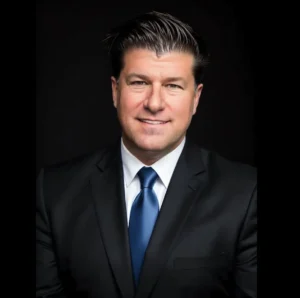
Nothing. I work on contingency—33 and one-third percent if we settle before trial, 40 percent if we go to court. I advance all costs. If we don’t win, you owe me nothing.
Depends on the complexity. Some settle in months, others take over a year. Spinal cord cases often require more time because we need to fully understand the extent of your injuries, calculate lifetime care costs, and retain expert witnesses. Insurance companies fight these cases hard because the amounts at stake are huge. That said, I push every case forward aggressively. Delays don’t help you, and they don’t help me. If we file a lawsuit and go to trial, it can take one to two years or more, but sometimes that’s the only way to get fair money.
Don’t panic. Many people make this mistake. I can usually work around it. Going forward, tell the adjuster to contact your attorney and call me.
Yes. Under Illinois law, you can pursue a claim for worsening a pre-existing condition. Be honest about your history—we’ll prove the accident made things significantly worse.
Some doctors treat on a medical lien, getting paid from your settlement. Workers’ comp covers work injuries. Auto med-pay may cover car accident injuries. Medicare and Medicaid are also options. Don’t skip treatment over money—we’ll figure out the billing.
About 90 percent of cases settle before trial. But the only way to get a fair settlement is to be prepared for court. I’ve tried over 30 jury cases. Insurance companies make better offers when they know your lawyer isn’t bluffing.
Hiring Scott was one of the best moves I have made in my life. Scott is a down to earth person and attorney. Scott is a 5 star first class act who really knows his stuff. The Judge said his presentation was one of if not the best he had ever seen. Take my advice, hire Scott I’m sure you’ll be 200% satisfied I was.

Scott not only cares about the case, but he truly cares about his clients and that makes him the best lawyer I have ever met and hired! He won my case! He is thorough in everything he does. I highly recommend Scott, and will always refer him to family and friends.

I hired Scott DeSalvo upon a friend’s recommendation. His office kept me informed of developments as they happened, and I felt the settlement reached was fair considering my injuries. I would highly recommend Scott DeSalvo to represent your personal injury case.

Many people ask me what the process actually looks like. Here’s the typical roadmap.
First, you call me and we talk. I listen to your story, answer your questions, and give you my honest assessment. If you hire me, my team immediately begins investigating—obtaining police reports, securing medical records, interviewing witnesses, photographing the accident scene, and identifying every liable party and insurance policy.
While you focus on treatment and recovery, my office stays in close contact with your doctors to document everything: diagnosis, prognosis, surgeries, therapies, functional limitations, and future care needs. We cannot settle responsibly until we understand the full permanent extent of your injuries. Rushing to settle before maximum medical improvement is one of the most expensive mistakes a person can make.
Once we have a clear picture, I prepare a comprehensive demand package with a detailed liability narrative, complete medical records, expert reports on lifetime care needs, a formal life care plan, an economic analysis of lost earnings, and documentation of your pain and suffering. I submit this to the insurance company and negotiations begin.
If they won’t offer fair value, I file a lawsuit. That doesn’t necessarily mean trial—it signals we’re serious. Many cases settle during litigation once the defense sees our evidence and preparation. If settlement still isn’t possible, we go to trial. I’ve tried over 30 cases to jury verdict. The courtroom is where my years of elite training pay the biggest dividends.

Waiting too long to hire a lawyer. Evidence disappears fast—surveillance footage gets erased after 30 to 60 days, witnesses’ memories fade, and the insurance company starts building their defense on day one. The sooner I’m involved, the stronger your case.
Giving the insurance company a recorded statement. The adjuster calls sounding friendly and sympathetic. Everything you say gets documented and used against you. Tell them your attorney has instructed you not to discuss your case.
Posting on social media. Insurance investigators monitor your Facebook, Instagram, TikTok—everything. A photo of you smiling at a family gathering becomes “evidence” you’re not suffering. Stay off social media until your case is resolved.
Skipping medical appointments. Gaps in your treatment records become ammunition for the insurance company to argue you’re not as injured as you claim. Follow your doctors’ orders. Go to every appointment. Complete your therapy.
Accepting the first settlement offer. It’s always designed to be accepted by desperate, unrepresented people. Have a lawyer evaluate any offer before you sign a release. Once you sign, it’s final.
Hiring the wrong lawyer. Not everyone has the experience for catastrophic cases. Ask about trial experience, spinal cord case history, and whether you’ll work with the actual attorney or get handed off to an associate. Trust your gut.

Some spinal cord injuries—particularly high cervical injuries—are fatal. If someone you love died from a spinal cord injury caused by another person’s negligence, Illinois law provides the right to file a wrongful death lawsuit within two years of the date of death. Recoverable damages include lost financial support, loss of guidance and companionship, the family’s grief and suffering, and funeral expenses.
These cases are emotionally devastating. I’ve sat with families who lost a husband, a wife, a parent. Nothing about it is easy. But holding the responsible party accountable and securing financial stability for the surviving family can provide a measure of justice during an impossibly difficult time. If you lost someone to a spinal cord injury, call me. We’ll talk honestly about your options.
Find out if you have a good case, or a tough one...for free!
My office is at 1000 Jorie Blvd, Suite 204, Oak Brook, IL 60523. But I come to you—your home, hospital, rehab facility, coffee shop, or over Zoom.
I represent clients throughout every Chicago neighborhood: the Loop, Lincoln Park, Lakeview, Rogers Park, Logan Square, Hyde Park, Bronzeville, Pilsen, Bridgeport, Beverly, Englewood, and beyond. Also throughout Cook County suburbs including Evanston, Skokie, Oak Park, Cicero, Arlington Heights, Schaumburg, and Palatine. Plus DuPage County (Naperville, Wheaton, Downers Grove), Lake County (Waukegan, Highland Park, Libertyville), Will County (Joliet, Bolingbrook, Plainfield), and Kane County (Aurora, Elgin, St. Charles)
There are thousands of injury attorneys in the Chicago area. You’ve seen the billboards and the bus ads. So why call me?
I’m not a case mill. Some firms churn out hundreds of cases, settling quickly and cheaply because they value volume over results. I take a deliberately limited caseload so every client gets focused, personal attention. When you call, you get me—not a paralegal, not an associate.
I have real, substantial trial experience. Over 30 jury trials, roughly 100 arbitrations, hundreds of depositions. Insurance companies make dramatically better settlement offers when they know the attorney across the table has actually won verdicts. Many injury lawyers retire without trying a single case. Think about that.
I’ve completed elite training that fewer than one in 10,000 lawyers have pursued. I’m available 24/7/365. I only represent injured people—never insurance companies or corporations. And you pay absolutely nothing out of pocket. No retainer, no hourly fees, no risk whatsoever.
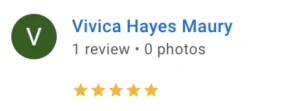
A spinal cord injury rewrites the story of your life. Your independence, career, relationships, finances—everything changes in an instant. The insurance company is already calculating how to pay you as little as possible. You’re scared, angry, and wondering what your future looks like. I understand. I’ve been close to this kind of devastation my entire life. First as a child watching my father suffer. Now as an attorney who’s spent over 20 years fighting for people in exactly your situation. I made a promise as a kid that what happened to my dad would never happen to anyone I could help. That promise drives everything I do.
Right now you need answers, honesty, and aggressive representation that won’t cost you a dime. That’s what I’m offering.
Call me at (312) 500-4500. Any time. Day or night. We’ll talk. I’ll listen. I’ll give you my honest assessment of your case. Then you decide.
Your fight is my fight. Let’s get started.
Don’t let insurance companies minimize your claim or pressure you into a settlement that won’t cover what you need. Call (312) 500-4500 now. Let’s start fighting for the justice and compensation you deserve.

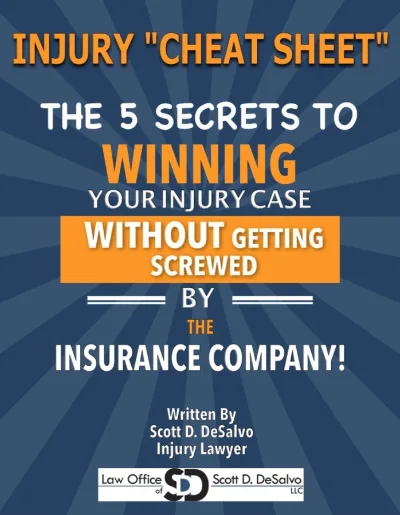

Scott DeSalvo founded DeSalvo Law to help injured people throughout Chicago and surrounding suburbs. Licensed to practice law in Illinois since 1998, IARDC #6244452, Scott has represented over 3,000 clients in personal injury, workers compensation, and accident cases.
No Fee Unless You Win | Free Consultation | 24/7 Availability Call or Text: (312) 500-4500
>>Read More
Main Office:
1000 Jorie Blvd Ste 204
Oak Brook, IL 60523
New Cases: 312-500-4500
Office: 312-895-0545
Fax: 866-629-1817
service@desalvolaw.com
Chicago and Other Suburban Offices
By Appointment Only